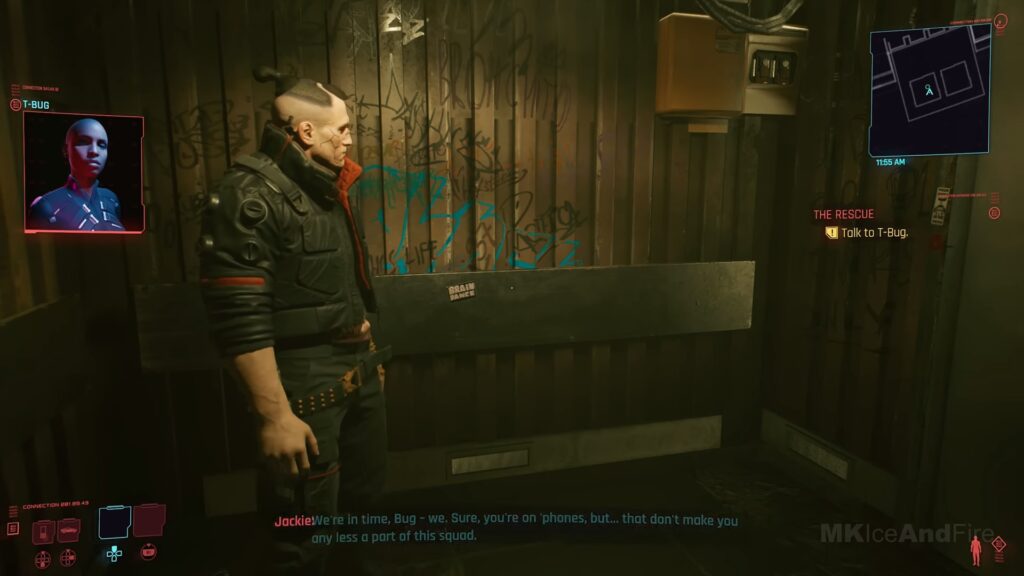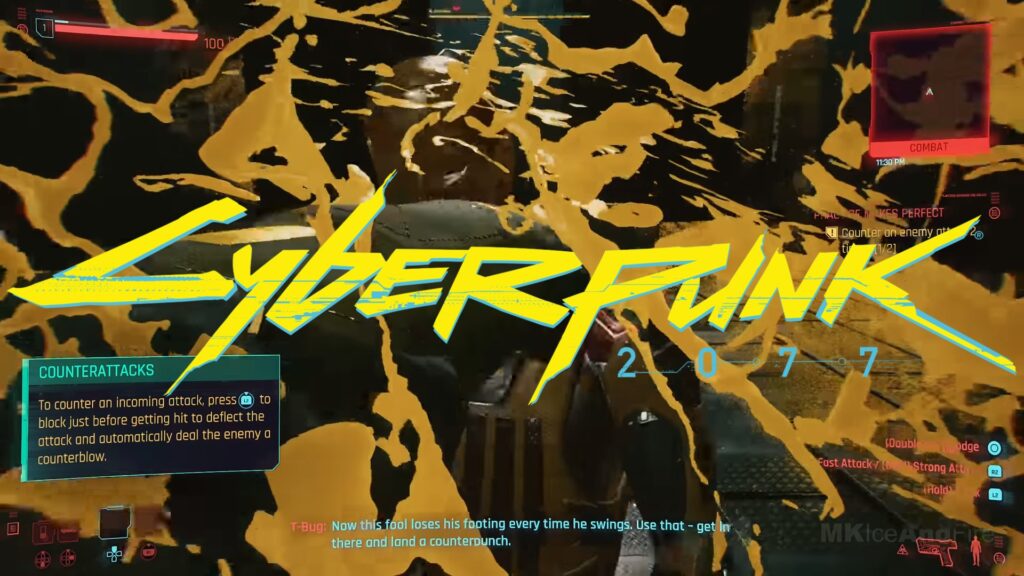
The Tech Noir Chronicles: An Introduction to Cyberpunk Gaming
Cyberpunk is a subgenre of science fiction that emerged in the 1980s, inspired by the works of William Gibson, Bruce Sterling, and other writers. It’s characterized by a dystopian future where technology has advanced beyond control and corporations have replaced governments.
In this world, people live in poverty and crime is rampant. Nowadays, cyberpunk has become one of the most popular genres in gaming.
It’s not hard to see why – the combination of high-tech gadgets, gritty urban environments, and complex characters make for an unforgettable experience. Cyberpunk games often explore themes such as transhumanism, corporate greed, social inequality, and artificial intelligence.
The evolution of cyberpunk gaming goes back to the early days of computer games. One of the first notable examples was Neuromancer – a game based on William Gibson’s novel of the same name.
Released in 1988 for various platforms such as Amiga, Atari ST and PC-98 among others; it was widely praised for its immersive atmosphere and innovative gameplay mechanics. Since then we’ve seen plenty more cyberpunk games released over the years – some good and some bad.
But each one has contributed something unique to elevate our experience with this genre that is so beloved by gamers all around the world. With this article we attempt to trace that journey from its humble beginnings until now – from VA-11 Hall-A all the way up to Cyberpunk 2077!
From VA-11 Hall-A to Cyberpunk 2077: A Timeline

Early cyberpunk games (e.g. Neuromancer, Shadowrun)
The cyberpunk genre in gaming can be traced back to the 80s and 90s when games like Neuromancer and Shadowrun were released. These early titles were mostly text-based adventures where players had to navigate a dystopian future through their decisions. They set the tone for what was to come in cyberpunk gaming, with themes centered around corporate greed, hacking, and a society on the brink of collapse.
VA-11 Hall-A: A bartender simulator with cyberpunk themes
A few decades later, we have VA-11 Hall-A – a game that shows how far we’ve come since those early text-based adventures. Released in 2016 by Sukeban Games, it’s a bartender simulator game set in a dystopian future where players take on the role of Jill Stingray – a bartender at VA-11 Hall-A (Valhalla), a small bar located in Glitch City. The game is full of references to early cyberpunk titles like Shadowrun, but it adds its own twist on the genre with its unique gameplay mechanics and character-driven story.
Players are tasked with serving drinks to various customers and branching story paths based on their choices. It’s not necessarily an action-packed game but it does an excellent job of immersing players into its world through its atmospheric music and visual design.
Deus Ex: A classic cyberpunk RPG with immersive gameplay and story
Deus Ex is one of the most iconic titles in cyberpunk gaming history. Released in 2000 by Ion Storm Austin, it’s an RPG that combines elements of first-person shooters with stealth mechanics set in a dystopian future where players take on the role of JC Denton – an agent for a UN anti-terrorist organization. Deus Ex is known for its immersive world-building, well-written characters, and branching narrative paths that allow players to make choices that affect the outcome of the story.
The Witcher 3: Wild Hunt – Blood and Wine expansion: An unexpected but well-received foray into the genre by CD Projekt Red
While not necessarily a cyberpunk game, The Witcher 3: Wild Hunt is worth mentioning in this timeline because of its “Blood and Wine” expansion. Released in 2016 by CD Projekt RED, it’s set in a futuristic city called “Toussaint” which has clear cyberpunk influences. Although it’s just an expansion, Blood and Wine was one of the most well-received titles in gaming history due to its atmospheric design, immersive gameplay, and well-written characters.
Cyberpunk 2077: The highly anticipated open-world RPG set in Night City
We have Cyberpunk 2077 – undoubtedly one of the most highly anticipated games in recent memory. Developed by CD Projekt RED (creators of The Witcher series), it’s set to be released in November 2020. In Cyberpunk 2077 players take on the role of V – a mercenary living in Night City – an open-world metropolis full of danger and opportunity.
The game promises to deliver a breathtaking world with immersive gameplay mechanics unique to cyberpunk gaming such as hacking and augmentations. From text-based adventures like Neuromancer to highly anticipated titles like Cyberpunk 2077 – cyberpunk gaming has come a long way over the past few decades.
While some games may stick more closely to traditional themes like corporate greed or hacking – others branch out into new territories such as character-driven stories or exploration mechanics. Fans eagerly await the next big cyberpunk title – but for now, there’s plenty to explore in this ever-evolving genre.
Evolution of Cyberpunk Gaming Mechanics

Exploration and open-world mechanics in modern games
One of the most significant trends in modern gaming is the shift towards open-world exploration. In cyberpunk games, this means players can explore neon-drenched cities and encounter NPCs with their own stories to tell. Games like Cyberpunk 2077, Deus Ex, and Shadowrun: Dragonfall feature immersive, sprawling worlds that encourage players to explore every nook and cranny.
These worlds are often littered with side quests that allow players to immerse themselves even further in the game’s lore. Another key aspect of exploration in cyberpunk games is verticality.
Players can often climb up onto rooftops or access hidden areas by hacking their way through security systems. The ability to traverse these environments in unique ways makes exploring these futuristic worlds all the more exciting.
Character customization and branching narratives
Another trend that has become increasingly popular in modern cyberpunk games is character customization and branching narratives. Players can create their own characters with distinct looks, skills, and abilities. They can also make choices that affect how the story unfolds.
Games like VA-11 Hall-A take this concept even further by allowing players to shape the story through dialogue choices made during conversations with NPCs. These choices can have major consequences for how events play out later on in the game.
In Cyberpunk 2077, character customization is taken to a whole new level with three distinct backgrounds for players to choose from: Nomad, Street Kid, or Corpo. Each background offers a unique perspective on Night City and influences how NPCs interact with your character.
Augmentations, hacking, and other gameplay mechanics unique to the genre
It wouldn’t be a cyberpunk game without some futuristic augmentations or hacking mechanics thrown into the mix. Games like Deus Ex and Shadowrun allow players to upgrade their characters with a variety of cybernetic implants that enhance their abilities in combat or help them hack into security systems.
Other games, like VA-11 Hall-A, feature hacking as a key gameplay mechanic. Players must use their hacking skills to gather intel on customers, unlock secret recipes for drinks, and even uncover hidden storylines.
Overall, the evolution of mechanics in cyberpunk gaming has allowed these games to become more immersive than ever before. Whether you’re exploring a sprawling open-world city or customizing your character to suit your playstyle, there’s never been a better time to be a fan of this beloved genre.
Themes Explored in Cyberpunk Games
“The future ain’t what it used to be.” – Cyberpunk 2020 Dystopian societies, corporate greed, and social inequality are just a few of the themes that have defined cyberpunk games since their inception.
These themes are often used to create a dark, gritty atmosphere that is meant to immerse players in a world that is vastly different from our own. However, the way these themes are explored has evolved over time.
In early cyberpunk games like Neuromancer and Shadowrun, dystopian societies were often depicted as lawless places where violence and chaos reigned supreme. Corporations were portrayed as all-powerful entities with no regard for human life or dignity.
Social inequality was shown through the stark contrast between the haves and have-nots. As technology advanced and game mechanics became more complex, cyberpunk games began to explore these themes in new ways.
Games like Deus Ex introduced branching narratives that allowed players to make choices that impacted the outcome of the game’s story. This allowed for a more nuanced exploration of social inequality, as players could choose to side with groups fighting for change or maintain the status quo.
“The corporations will always find a way.” – Deus Ex: Human Revolution More recent games like Cyberpunk 2077 continue to explore these classic themes while also adding new ones into the mix.
In this game, players must navigate a world where people can upload their consciousness into machines and corporations have become even more powerful than ever before. The game also explores issues related to transhumanism – a topic not often touched on in earlier cyberpunk works.
How these Themes Have Evolved Over Time
As mentioned earlier, advancements in technology have allowed for more nuanced explorations of classic cyberpunk themes like dystopian societies and social inequality. However, these themes have also evolved in response to changes in the world outside of gaming. For example, the rise of social media and the internet has created new avenues for corporate greed and surveillance.
This is reflected in games like Watch Dogs 2, which explores issues related to online privacy and data collection by large corporations. Similarly, issues related to climate change are now being explored in cyberpunk games like Cloudpunk.
In this game, players must navigate a city that is slowly drowning due to rising sea levels caused by climate change. Cyberpunk games continue to be popular due in large part to their exploration of classic themes like dystopian societies and corporate greed.
However, as technology advances and the world changes around us, these themes will continue to evolve as well. It will be interesting to see what new themes emerge as we move further into the future.
Impact on Gaming Industry
Influence on other genres (e.g. sci-fi, action-adventure)
The impact of cyberpunk games has extended beyond the genre itself and influenced other areas of gaming as well. For instance, the science fiction genre has been heavily influenced by cyberpunk themes such as futuristic technology and dystopian societies.
Games like Mass Effect, which blend elements of science fiction and roleplaying games, have borrowed from cyberpunk in their world-building and storytelling. Even action-adventure games like Assassin’s Creed and Horizon Zero Dawn have taken inspiration from the mechanics and themes of cyberpunk gaming.
The use of advanced technology in these games often takes center stage, with players utilizing gadgets and weapons to overcome obstacles and defeat enemies. Cyberpunk games have also paved the way for more complex storylines that explore deeper societal issues beyond just good versus evil.
How these games have evolved over time
Cyberpunk games have come a long way since their early iterations in the 1980s. With advances in technology, developers are able to create more immersive experiences that push boundaries in terms of graphics, scale, and interactivity.
The rise of open-world gameplay has allowed for greater freedom and exploration within these futuristic environments. However, as much as they’ve evolved technologically, there’s also been an evolution from a storytelling perspective.
While early cyberpunk games often relied on surface-level exploration of themes like corporate greed or social inequality, modern titles are creating narratives that delve deeper into those themes while exploring new ones as well. One thing is certain: Cyberpunk gaming has left an indelible mark on the industry as a whole – not just because it’s popular right now but because it continues to inspire innovation even after three decades.
Conclusion
Cyberpunk gaming has had a profound influence not only on the gaming industry but on pop culture as a whole. These games have challenged our perceptions of the future and inspired us to think critically about the consequences of technology, while also allowing us to escape into immersive worlds full of adventure. As we look forward to upcoming releases like Cyberpunk 2077, it’s clear that cyberpunk gaming will continue to evolve and push boundaries – and we can’t wait to see what the future holds.
Despite all its grim warnings, at its core, cyberpunk is about using technology for good and making a brighter future for all. The possibilities are endless, and that’s why we’ll always be excited about what comes next in this fascinating genre.
-
Onn Stereo Audio Cable, 6 Feet
$6.96 -
Original Power Powerline 600 mA Universal AC Adapter
$14.88 -
Plantronics 206808-60 Rig 400HS Camo Stereo Gaming Headset for PlayStation 4
Original price was: $44.88.$34.99Current price is: $34.99. -
Plantronics C27XAX RIG 4 VR Gaming Headset for Playstation 4 and Playstation VR
Original price was: $59.99.$49.99Current price is: $49.99. -
Plantronics RIG 100HS Camo Chat Gaming Headset for PlayStation 4
Original price was: $23.99.$19.99Current price is: $19.99. -
Retro Machine, dreamGEAR My Arcade, Retro Gaming, 200 Built-In-Games Portable Tabletop Video Game 845620025770
Original price was: $19.99.$15.99Current price is: $15.99.







